Bankruptcy is a word that carries a lot of weight. It’s a term that’s often associated with financial ruin and failure. Many people are afraid to even consider it as an option for fear of what it might say about them or how it might impact their reputation.
But the truth is, bankruptcy is an option. It’s a legal process designed to help people who are struggling with debt to get a fresh start, and It’s a complex process that can have significant impacts on your financial life. If bankruptcy is the best option for your situation, then it’s not something to be ashamed of. If it sets you free from the burden of debt, then it might be worth considering.


In this blog, we’ll explore what bankruptcy is, how it works, and what you need to know if you’re considering it as an option for debt relief. We’ll also look at some of the alternatives to bankruptcy and help you determine which option might be right for your unique situation.
So if you’re struggling with debt and wondering what your options are, read on to learn more.
Understanding Bankruptcy: What you need to know
In simple terms, bankruptcy is a legal process that’s designed to help people who are struggling with debt. When you file for bankruptcy, you’re essentially telling the government that you’re unable to pay your debts and need help to get back on track.
To help explain it using an analogy, think of your finances as a garden. Just like a garden needs regular care and attention to thrive, your finances require you to manage your money carefully and make regular payments on your debts.
However, sometimes unexpected events can occur, such as a drought or a pest infestation, which can damage your garden and make it difficult to maintain. Similarly, unforeseen circumstances like a job loss, illness, or a relationship breakdown can cause financial difficulties and make it hard to keep up with your debt repayments.
In such cases, bankruptcy can be like a reset button for your finances, just like a gardener might need to clear the weeds and start over to restore their garden. While it’s not a decision to be taken lightly, filing for bankruptcy can provide relief from the stress of overwhelming debt and give you a fresh start.
It’s important to note, however, that like any legal process, bankruptcy has its own set of rules and regulations, and it’s not a one-size-fits-all solution. So, it’s crucial to seek out a professional before making any decisions about your financial situation.
Is bankruptcy the right choice for you?


Deciding whether bankruptcy is right for you is a serious matter that requires careful consideration. Here are some things to keep in mind as you weigh your options:
- First, assess your financial situation honestly. Consider your income, expenses, assets, and debts. Are you struggling to keep up with your repayments? Do you have any savings or assets that you could use to pay off your debts? It’s important to have a clear understanding of your financial situation before making any decisions.
- Second, think about your goals. Do you want to get out of debt quickly and start fresh? Or are you willing to work through your debts over time with the help of a get out of debt strategy? Consider what you hope to achieve in the long term and how bankruptcy might affect you reach those goals.
- Third, always seek professional advice especially when legal matters are involved. Speak with a financial counselor or a bankruptcy attorney who can help you understand your options and guide you through the process. They can help you determine whether bankruptcy is the right choice for your unique circumstances. A good place to start is AFSA (the Australian Financial Security Authority’s) website, which offers a directory of registered debt agreement administrators and bankruptcy trustees.
To help you visualise the decision-making process, think of it like planning a trip. You need to know your starting point, where you want to go, and how you’re going to get there. You might need to research the best routes, compare different modes of transportation, and consider the cost and time involved. In the same way, deciding whether bankruptcy is right for you requires careful planning and weighing up of different options.
It’s important to remember that bankruptcy can come with serious consequences, including restrictions on your financial and personal freedoms, as well as the potential loss of assets. But for some people, bankruptcy can be the lifeline that helps them get back on track financially.
What are the alternatives to bankruptcy?
While bankruptcy is the right solution for some, it’s worth noting that this isn’t your only option. There are several other paths you can explore before considering it.
At Debt Angel Solutions, we specialise in debt negotiation and informal debt agreements to help our clients find relief from their debt burdens. These services are designed to help you get back on your feet and have nothing to worry about. We handle everything for you and will go to bat for you on your behalf with your creditors. However, if you’re not sure whether this is the right option for you, there are other alternatives to consider:
- One option is a debt consolidation loan. This involves taking out a new loan to pay off multiple debts, leaving you with only one loan repayment to make each month. This can make your debt more manageable and help you get back on track.
- Another is the option of a Part IX Debt Agreement. This is a legally binding agreement between you and your creditors that allows you to settle your debts over a set period of time, it is important to note that a Part IX Debt Agreement is an act of Bankruptcy and carries many of the same restrictions Bankruptcy does.
Before you make your choice, there are some potential setbacks to be aware of. For example, a Part IX debt agreement will appear on your credit report for up to five years, which can make it difficult to obtain credit during that time. Additionally, if you are unable to make the agreed-upon payments under the debt agreement, you could still be at risk of your creditors once again chasing their money and or bankruptcy.
It’s also important to note that not all creditors will need to agree to a Part IX debt agreement, and even if they do, they may not be willing to accept anything less that the full amount owed. This can make it difficult to negotiate a debt agreement that works for both you and your creditors.
You could also do what we do for our clients. Debt Negotiation, and Informal Debt Agreements.
- Debt negotiation or settlement involves working with your creditors to come to an agreement on a reduced balance and payment amount or restructure loans to make them more viable and affordable. While we also offer this service, you can still explore this option on your own if that’s what you prefer or you could join the freedom shift academy and the Breathe easy course where we teach participants what their options are, how to stand up for their rights and how to negotiate their way out of debt, with a coaching and accountability component so you are not alone while you work to implement the Get Out of Debt Strategy we give you and navigate your way out of debt.
Remember, each of these alternatives has its own pros and cons, and what works for one person may not work for another. Which is why it’s highly advisable to seek professional help and research all your options before making a decision.
Understanding the consequences of bankruptcy
If you choose to go through with bankruptcy, there are some serious consequences to consider. First off, you’ll be bankrupt for at least three years, and your name will be added to a public database that anyone can check. This means banks, landlords, and employers can all see that you’ve been bankrupt, which could make it harder to get credit, rent a home, or find a job.
You might also have to give up some of your possessions to pay off your debts, and you could have trouble getting insurance or even connecting utilities like gas and electricity. Traveling overseas might also be restricted or require permission.


In addition to these consequences, bankruptcy conditions are legally binding, which means you have to follow the rules or face even more trouble. And if your income goes up, you might have to pay back some of the money you owe.
So while bankruptcy can offer a fresh start, it’s important to understand the potential risks before making a decision. If you’re considering bankruptcy, make sure to do your research and talk to a professional before taking the plunge. You can find more information about bankruptcy and its consequences on the Australian Financial Security Authority (AFSA) website. Simply click here to learn more about the consequences of bankruptcy.
How does the bankruptcy process work?
When considering bankruptcy, it’s important to understand the process involved. First, you’ll need to complete and lodge a Bankruptcy Form with AFSA or through a private trustee. This form outlines your personal and financial situation, including any assets you own, debts you owe, and income you receive.
(Some people actually choose to go through a private trustee instead of AFSA, as it can provide more personalised and flexible service. However, it’s important to note that private trustees come at a cost.)
Once the form is lodged, AFSA will review your application and may contact you for further information. If your application is accepted, you’ll be declared bankrupt, and a trustee will be appointed to manage your affairs.
The trustee’s job is to sell your assets (excluding those that are protected) to repay your creditors as much as possible. They’ll also assess your income and expenses to determine if you need to make any ongoing payments towards your debts.
During bankruptcy, you’ll need to provide regular updates to your trustee and follow their instructions. This may include attending meetings and providing financial reports.
After your bankruptcy period ends, you’ll be discharged, and most of your debts will be cleared. However, some debts, such as fines, student loans, and child support, may not be included in the discharge.


Remember that bankruptcy is just a word and it does not define you as a person. It’s just a tool that can help you get back on your feet when you’re drowning in debt. Don’t let the fear of what others might think of you stop you from exploring this option if it could potentially provide you with the financial relief you need.
Bankruptcy is not something to be ashamed of, nor is it a sign of failure. It’s a legal process designed to help individuals and businesses restructure their finances and start fresh. It can be a difficult decision to make, but sometimes it’s necessary to move forward and leave the burden of the past behind.
If you’re considering bankruptcy, make sure you consult with a qualified professional who can guide you through the process and help you make the best decision for your situation. There are other options available as well, such as debt consolidation or debt management plans, informal debt agreement, or part IX debt agreements, but bankruptcy should not be dismissed out of fear or shame.
Remember, your mental and emotional well-being are just as important as your financial health. If the pressure of debt is weighing you down and affecting your quality of life, seeking help, talking to somebody, and exploring all of your options, including bankruptcy, could be the best thing you do for yourself. So don’t be afraid to take that step towards a brighter financial future.




